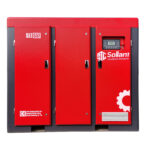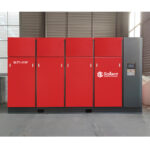A 37 kW air compressor is a substantial piece of industrial equipment designed for heavy-duty applications requiring high air flow and pressure. To maximize its efficiency and ensure optimal performance, it’s essential to follow best practices in operation, maintenance, and management. This article provides a comprehensive guide on how to use a 37 kW air compressor efficiently.
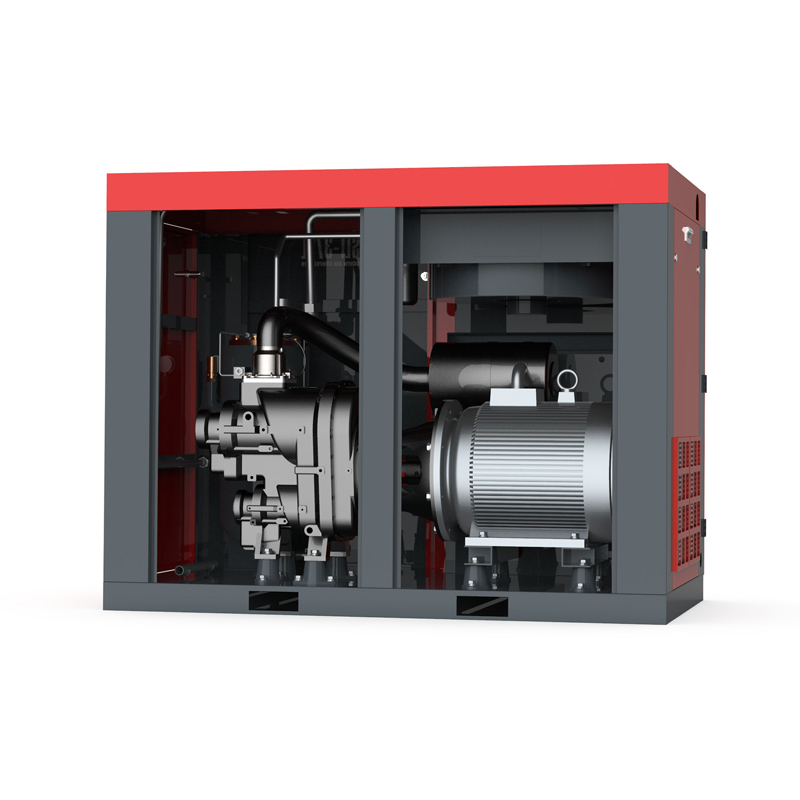 37 kW Air Compressor
37 kW Air Compressor
1. Understand Your Air Compressor’s Specifications
- Know the Capacity and Pressure Ratings:
- Familiarize yourself with the compressor’s capacity in cubic meters per minute (m³/min) or cubic feet per minute (CFM) and its pressure ratings in bars or PSI. Understanding these specifications helps ensure that the compressor is suitable for your specific applications and prevents overloading.
- Review Manufacturer Guidelines:
- Always refer to the manufacturer’s manual for detailed information on the optimal operating conditions, maintenance schedules, and technical specifications. Adhering to these guidelines ensures proper usage and longevity of the equipment.
2. Optimize System Design and Setup
- Proper Installation:
- Ensure that the compressor is installed in a well-ventilated area to prevent overheating. Adequate space around the unit allows for effective air circulation and easy access for maintenance.
- Implement Effective Piping:
- Use correctly sized and well-maintained piping to minimize pressure drops and ensure efficient air delivery. Properly installed and maintained piping systems reduce energy losses and improve overall efficiency.
- Install Air Receivers:
- Use air receivers or storage tanks to balance the supply and demand of compressed air. Air receivers help to manage peak demand and reduce the compressor’s workload, improving efficiency and extending equipment life.
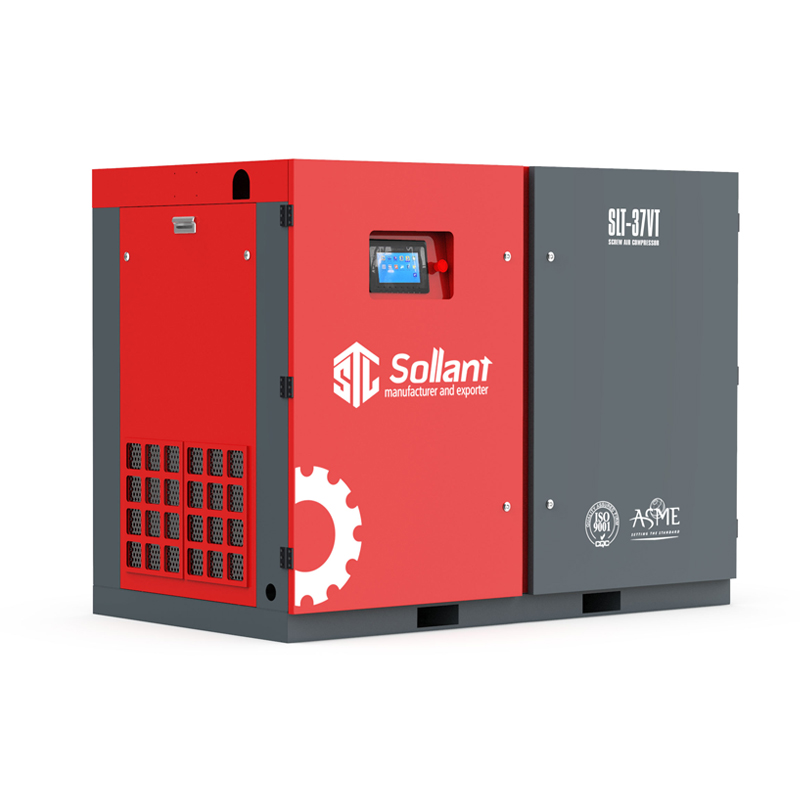 37 kW Air Compressor
37 kW Air Compressor
3. Regular Maintenance and Monitoring
- Scheduled Maintenance:
- Follow the recommended maintenance schedule for routine inspections, oil changes, and filter replacements. Regular maintenance prevents breakdowns, ensures efficient operation, and extends the lifespan of the compressor.
- Monitor System Performance:
- Continuously monitor the compressor’s performance metrics, such as pressure levels, temperature, and operating hours. Use this data to identify potential issues early and make adjustments as needed to maintain efficiency.
- Check and Clean Air Filters:
- Regularly check and clean or replace air filters to ensure optimal airflow and prevent contaminants from entering the compressor. Dirty filters can reduce efficiency and increase energy consumption.
4. Improve Energy Efficiency
- Optimize Load and Duty Cycle:
- Match the compressor’s capacity to the actual demand to avoid running it under or over-loaded conditions. Implementing load management strategies helps reduce energy consumption and operational costs.
- Use Variable Speed Drives (VSDs):
- Consider using a variable speed drive (VSD) if your compressor is equipped with one or if upgrading. VSDs adjust the compressor’s speed based on demand, which improves energy efficiency and reduces operating costs.
- Implement Leak Detection and Repair:
- Regularly inspect the compressed air system for leaks and repair them promptly. Air leaks can significantly waste energy and reduce the efficiency of the entire system.
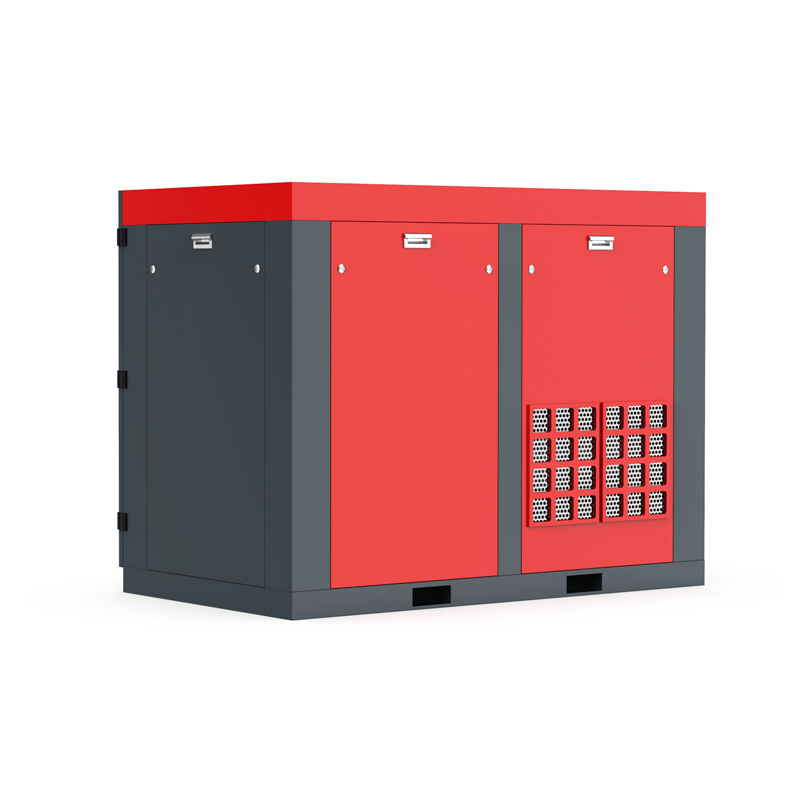 37 kW Air Compressor
37 kW Air Compressor
5. Training and Safety Practices
- Operator Training:
- Ensure that operators are properly trained in the operation and maintenance of the 37 kW air compressor. Proper training helps prevent operational errors and promotes safe and efficient use of the equipment.
- Follow Safety Protocols:
- Adhere to safety protocols, including wearing personal protective equipment (PPE) and following safety guidelines. Proper safety measures prevent accidents and injuries while operating the compressor.
6. Consider Environmental Impact
- Energy-Efficient Practices:
- Adopt energy-efficient practices and technologies to minimize the environmental impact of the compressor. Energy-efficient compressors and systems contribute to lower carbon emissions and reduced operational costs.
- Recycling and Disposal:
- Follow proper procedures for recycling and disposing of used oil, filters, and other waste products. Proper disposal helps protect the environment and comply with regulatory requirements.
Conclusion
Efficient use of a 37 kW air compressor involves understanding its specifications, optimizing system setup, conducting regular maintenance, and improving energy efficiency. By implementing these best practices, you can ensure that the compressor operates effectively, reduces energy consumption, and extends its lifespan. Proper training and safety measures also play a critical role in achieving efficient and safe operation. Adopting these strategies will help you maximize the performance of your 37 kW air compressor and achieve long-term operational success.
Click the link below to learn more:
6 Comprehensive Guide to Air Compressor Installation and Startup Commissioning

